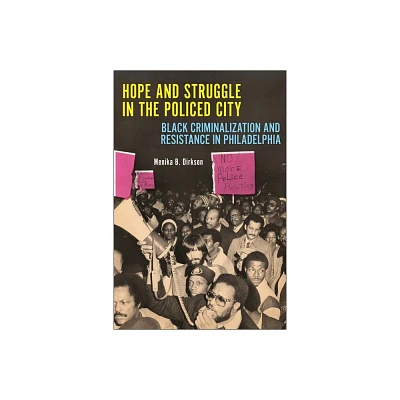Home
Comparative Policing: The Struggle for Democratization
Loading Inventory...
Barnes and Noble
Comparative Policing: The Struggle for Democratization
Current price: $218.00


Barnes and Noble
Comparative Policing: The Struggle for Democratization
Current price: $218.00
Loading Inventory...
Size: Hardcover
*Product Information may vary - to confirm product availability, pricing, and additional information please contact Barnes and Noble
"A wonderful resource, user friendly and very well written." - Timothy J. Horohol, John Jay College
A unique approach to studying police forces around the globe
How do police forces around the world move toward democratization of their operations and responses? Analyzing police forces from 12 different countries,
Comparative Policing: The Struggle for Democratization
assesses the stages of each country based on the author's development of a "Continuum of Democracy" scale.
Key Features
Using five basic themes, this book uses the following criteria to rank and evaluate where each country falls on the continuum, clarifying how policing practices differ:· History of a democratic form of government· Level of corruption within governmental organizations and the oversight mechanisms in place· Scope of and response to civil disobedience· Organization structures of police departments· Operational responses to terrorism and organized crime
Intended Audience:
This unique analysis of policing is an ideal text for undergraduate and graduate courses in Comparative Criminal Justice, Police Studies, Policing and Society, and Terrorism in departments of criminal justice, criminology, sociology, and government.
A unique approach to studying police forces around the globe
How do police forces around the world move toward democratization of their operations and responses? Analyzing police forces from 12 different countries,
Comparative Policing: The Struggle for Democratization
assesses the stages of each country based on the author's development of a "Continuum of Democracy" scale.
Key Features
Using five basic themes, this book uses the following criteria to rank and evaluate where each country falls on the continuum, clarifying how policing practices differ:· History of a democratic form of government· Level of corruption within governmental organizations and the oversight mechanisms in place· Scope of and response to civil disobedience· Organization structures of police departments· Operational responses to terrorism and organized crime
Intended Audience:
This unique analysis of policing is an ideal text for undergraduate and graduate courses in Comparative Criminal Justice, Police Studies, Policing and Society, and Terrorism in departments of criminal justice, criminology, sociology, and government.


















